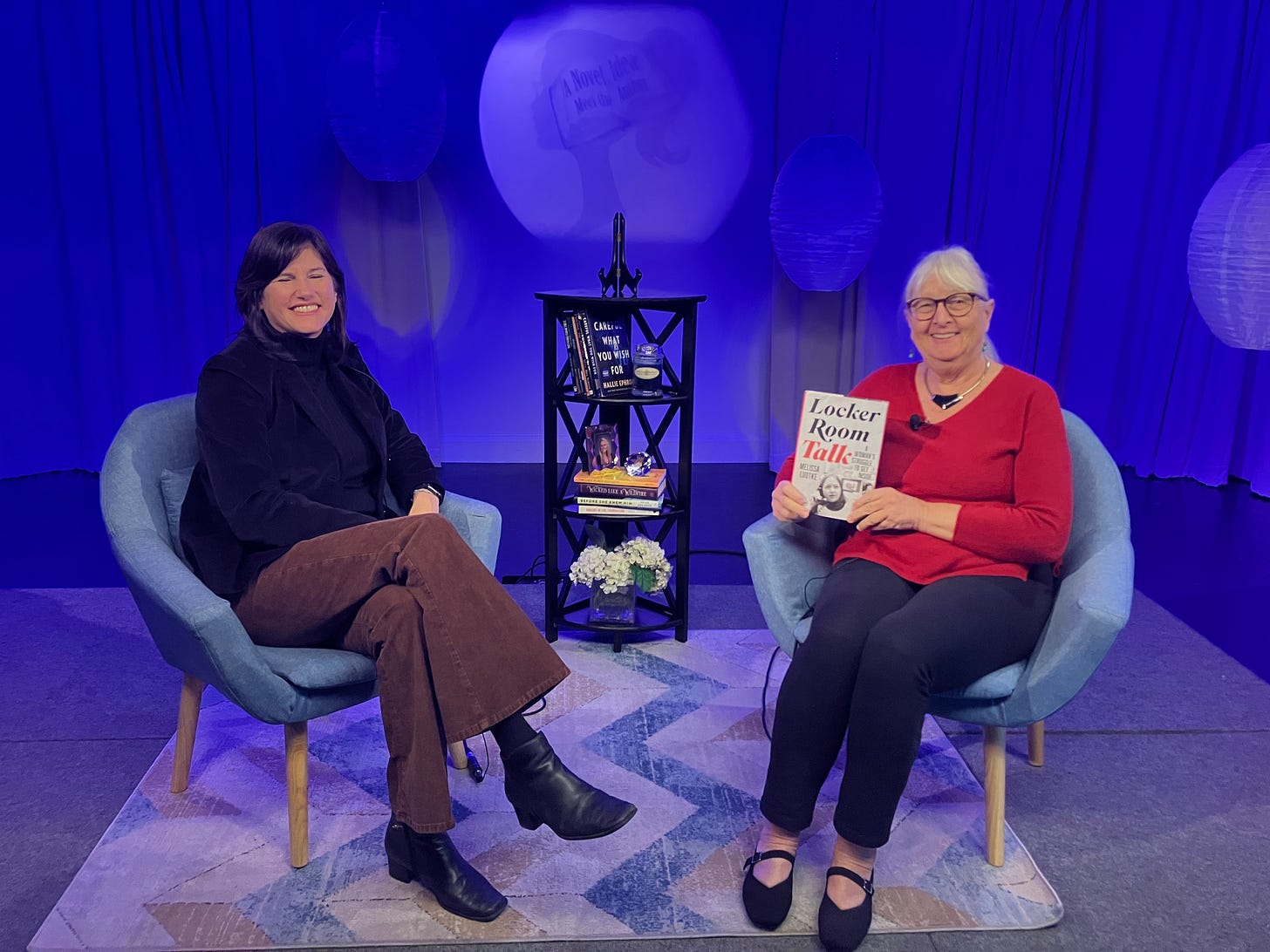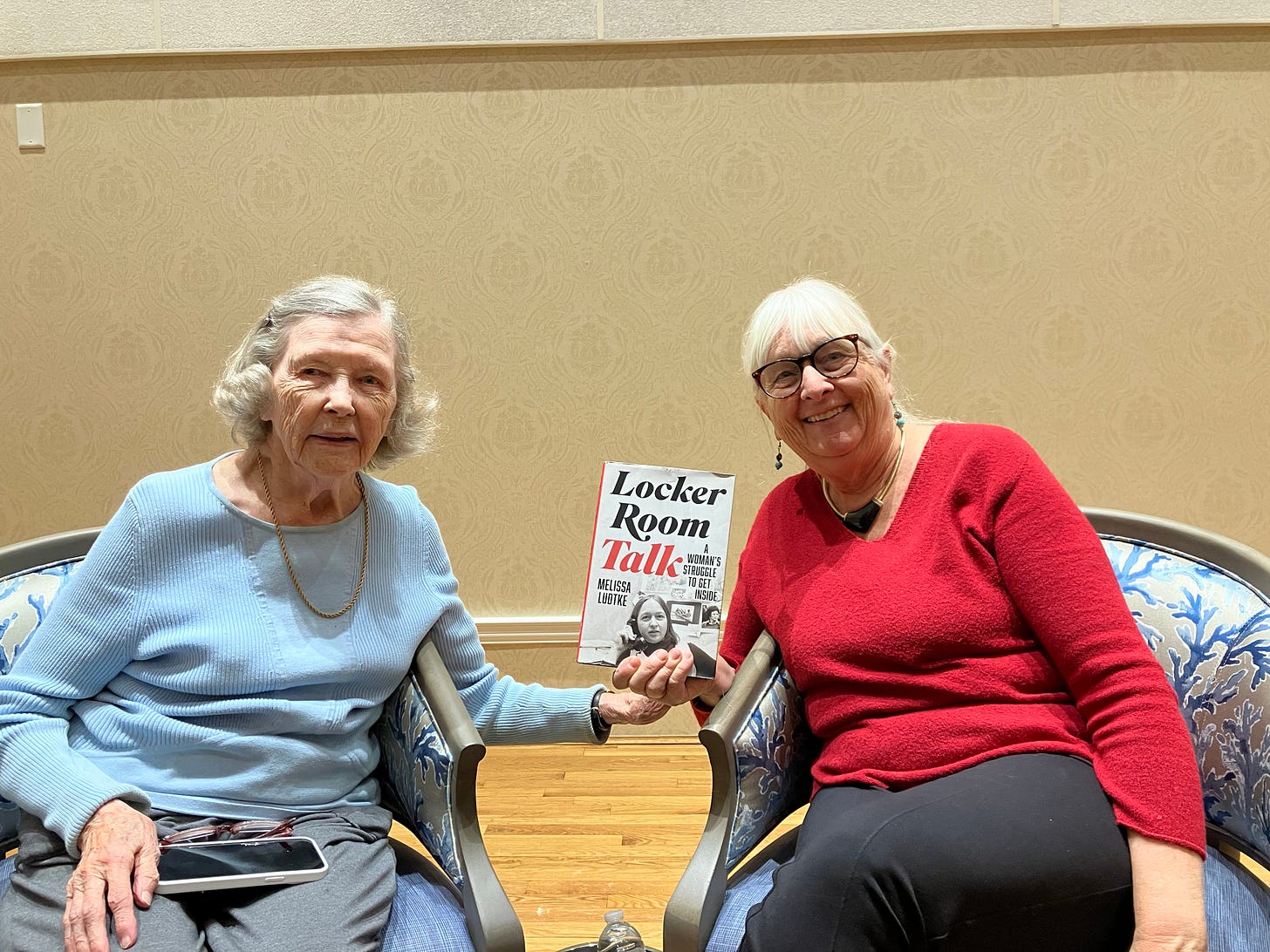Let's Row Together
When rowing ends on Thanksgiving, my season-long reliance on its predictability goes too. So, I'll look for reinforcements to sustain me during this winter of discontent.
Early Thanksgiving morning I’ll row on the Charles River joined by 86 other hearty New Englanders.
At Community Rowing in Boston, we do this each November.
For me, it’s about being together once more before we go our separate ways to feast with family and friends. It’s also our last time rowing until March.
This year, my final row of this season feels especially bittersweet.
Instead of joyfully anticipating my next row, I’ll reckon with the melancholy of early darkness in the chilly months ahead. Instead of powering crew shells together, I will exist with uncertainty in the aftermath of our national election as I anticipate changes as momentous and terrifying as any I’ve experienced in my lifetime.
When I row, I thrive on predictability.
This winter, instability is likely our only constant.
In a crew shell, I enter each stroke by pushing my arms away from my body, and my oar goes with them. Then, I hinge at my hips to set my “body-over” position before I slide my seat to the “catch,” all the while synching my motions with the rower in front of me. By raising my hands, my oar’s blade dips into the water and at that moment my legs are pushing hard, then accelerating to propel the blade through the water and the boat forward.
When flow of strokes synchs with the flow of the boat – when the oars load at just that moment when the boat is pushed forward – the feeling is magical.
When I finish that stroke, I turn my blade flat to carry it back above the water, as I recover - breathe - to begin the cycle anew.
When we race, I do this more than 30 times each minute.
Rowing — or any activity dependent on precise, repetitive, long practiced, in-synch motions that demand intensive focus on coordinating one’s actions with those of the others – guarantees a vital respite from the chaos of the world around us.
For this reason, and many others, I’ll miss rowing this winter. While I will look for activities with similar attributes, I admit that none I’ve tried combine the elements of camaraderie, reciprocity and focus I find on the river. So, this winter I’ll search again, perhaps harder than before knowing I need to bulk up on restorative health - physical and mental – if I am going to be ready to act collaboratively if and when our nation’s foundational principles are compromised or issues I care about are jeopardized.
Off the River, Finding the Flow
We enter this winter of discontent with widening divides. Politics inflames personal enmity, separates family members and silences friends.
David Isay, who founded Story Corps, recently launched “One Small Step” in an effort to heal what he calls the “culture of contempt” tearing people apart and fracturing our nation.
“Our dream with One Small Step is that we convince the country that it’s our patriotic duty to see the humanity in people with whom we disagree.” - Dave Isay
In the spirit of healing that led Isay to create One Small Step, I’m sharing this short video to show how it works – and I encourage you to explore it more on your own.
“I would love to see people walk towards each other. You know, we’ve spent a lot of time calling each other names and in the history of humanity, calling someone a name has never changed their mind, has never had anything good come of it.” - Isay, in Columbus, Ohio
Back to Women in Sports Media
In the 11 months I’ve been writing “Let’s Row Together,” you’ve heard a lot from me about my life and times as a young woman covering Major League Baseball in the 1970s. More than a few of you might be inclined to say, “well, that was then, and this is now when things are a lot better for women, aren’t they?”
Well, this morning my friend Brooke Kroeger, author of “Undaunted: How Women Changed American Journalism,” (2023), tagged me on a Facebook post of a story by Erin Ferrare, a student at North Carolina State University. In her commentary, Erin tells us what it’s like often being the only woman working in a sea of men when she shows up to cover games for her college newspaper.
The younger me could have written her essay had I thought to share my feelings publicly back then, which I rarely did. What Erin describes from her sportswriting life you will find written in Locker Room Talk, as I look back on my 20-something years.
Erin’s essay in Technician, the newspaper of North Carolina State University
The sounds of dap-ups and handshakes surround me as I sit in my chair in the press section of a women’s basketball game. Conversations of bets and statistics and schedules fly around while I try to find a comfortable position with the little leg room I have thanks to the man-spreading of colleagues around me.
I have seen these people multiple times for well over a year, covering multiple different NC State athletic games, and yet I am practically invisible whereas my male counterparts get greeted with smiles and laughs. This is my experience of being the invisible girl on press row.
Suddenly a place I used to love morphed into an environment of hyper-masculine posturing and a place where I couldn’t even get a head nod in acknowledgement. No one wants to be in a place where they don’t feel comfortable and welcomed. Some people might just tell me to “suck it up” and “that’s how this field works,” but I’m not the kind of person to push the interactions down. If the culture of sports writing isn’t welcoming to women, then it’s time for a change.
In order for this change to happen, we need to start acknowledging the women in the media rooms and press boxes. Ignoring them and treating them like a ghost pushes our voices down and can create an unwelcoming environment. While shoving myself to the front of interview crowds in busy locker rooms is what I have had to resort to, it shouldn’t be the norm. My heels can only get so high before they become dangerous, and my taller counterparts should give some grace to those different from them.
To the other young women and girls interested in pursuing sports media: You might be a ghost on press row like me. We may be silent during games and in public, but one place we cannot be shoved to the back of the room is in our writing. Don’t be afraid to take up space. You deserve to be in the arena, on the field and in the locker room just as much as any man.
Reading of Erin’s disheartening experience – and admiring her determination to push on despite her challenges – I recalled a similar column I read earlier this year, written by another woman who loved writing college sports, though, like Erin, she wasn’t treated well by the men who were her usual companions on this job.
By Emma Moon, The Daily Tar Heel summer sports editor, University of North Carolina, June 23, 2024
In the hours leading up to a riveting game of college football, I panic and overprepare. I lay out my clothes to make sure they don’t wrinkle. I read my favorite sports article to remind myself why I want to do this.
I simply work to fit into a world that I don’t belong in. I grasp at any controllable before the inevitable happens — someone will ask me a ridiculous question or explain a simple term.
"How familiar are you with the game of football?"
"I don’t know if you know, but a pick 6 occurs when a defensive player forces an interception and returns it for a touchdown."
I know.
For the entire game, I sit silently in the gray uncomfortable chairs as the reporters who have known each other for years sustain their baritone banter.
I fight an internal dialogue whispering that I don’t know how football works. I fight the feeling that I’ll blunder in the post-game press conferences. I fight the fear that I just don’t belong.
I tug and pull at my clothes to ensure they are perfect. I take diligent notes and work to absorb everything.
I’ll endure the panic time and time again just for the sense of pride that comes from finishing a story. The pride that only comes with knowing a story is better than your last one and the sense that you might be getting a handle on writing and developing your craft.
I always end up reading my story to my parents or my grandparents. I’ll read it to anyone who will let me.
For the next couple of days, I subsist on this enjoyment. This is what I do it for. This is why I chose this career for myself despite the pressure and the anxiety.
Eventually, it will subside. Another Saturday will approach and another gameday will overshadow the last.
Finally, I am going to share words that sportswriter Paola Boivin published on X after Fernando Valenzuela died in October.
Oct 26 • 5 tweets • 1 min read • Read on X
A thread about @OrelHershiser, who saved my journalism career. He was part of tonight’s poignant first-pitch ceremony for Fernando Valenzuela. … I had a hard time with baseball clubhouses early in my sports writing journey. It was a difficult place for women in the early yrs …
I used to walk in the Dodgers clubhouse with my head down, afraid to make eye contact. Some of my female peers had encountered trouble with MLB players. I would never wear perfume or dress overly feminine because I didn’t want to be noticed …
One day I heard a player go “psst, Paola.” Uh oh, I thought. It was Orel. I walked to his locker, fearing what I might hear. …
He said, “Listen, I see you walk in here every day with your head down, looking at your feet. The next time you come in, I want you to look straight ahead, throw your shoulders back and act like you belong. Because you do” …
I can’t tell you how much that meant to me, especially in that era. I was a different person the next day. I just wanted to share what a good person he is. I’ve shared the story before, and he’s probably sick of it, but I think it’s important.
Locker Room Talk: A Woman’s Struggle to Get Inside
I’m not flying around the country again until 2025. Yes, it’s wonderful to be home, but that does not mean that my book tour has quieted down. This morning I drove to Danvers, MA to tape a local access TV program, A Novel Idea: Meet the Author, with Danvers’ town’s librarian Noelle Boc. Here is the link to our conversation.
And on Tuesday, I was in Duxbury, MA with my longtime friend, Betty Bingham, who worked at Sports Illustrated when the magazine was launched in the mid-1950s. I got to know her when I worked there in the 1970s. By then, she was married to Walter Bingham, a senior editor at S.I. Now in her nineties, Betty and I had a marvelous time talking about my book with residents of The Village in Duxbury, where she lives.
With the holiday ahead, let me offer suggestions for two terrific gifts for the young women and men in your life. These days, when I am asked to sign books, people often ask me to write an inscription to their grandchild or daughter or son or their niece or mother. Happy to do this, so if you buy a book and want it inscribed, I will do so on a special bookplate and send it to you. Just email me at melissa.ludtke@gmail.com
To buy Locker Room Talk, go to Rutgers University Press and to my book’s page. There, apply this code RUSA30 to receive a 30% discount on the book + free shipping.
To purchase a Locker Room Talk baseball cap — in white, black, blue or green - go to my website, melissaludtke.com, then the tab SHOP, and place your order there.
Another fun and unique gift for a special someone in your life.
Spread the word.











ugh college boys are the worst - youngsters mindlessly imitating their badly-behaving elders. And the young people are supposed to save us? My money's on the Erins and Emmas to lead the way.
So, Gigi, when you see almost everybody who gets on the erg in the gym doing it wrong, do you ever say anything? I don’t, but I am sorely tempted!